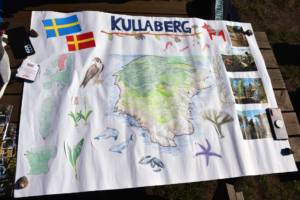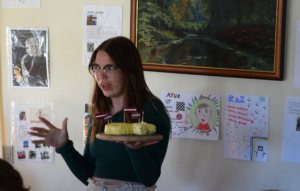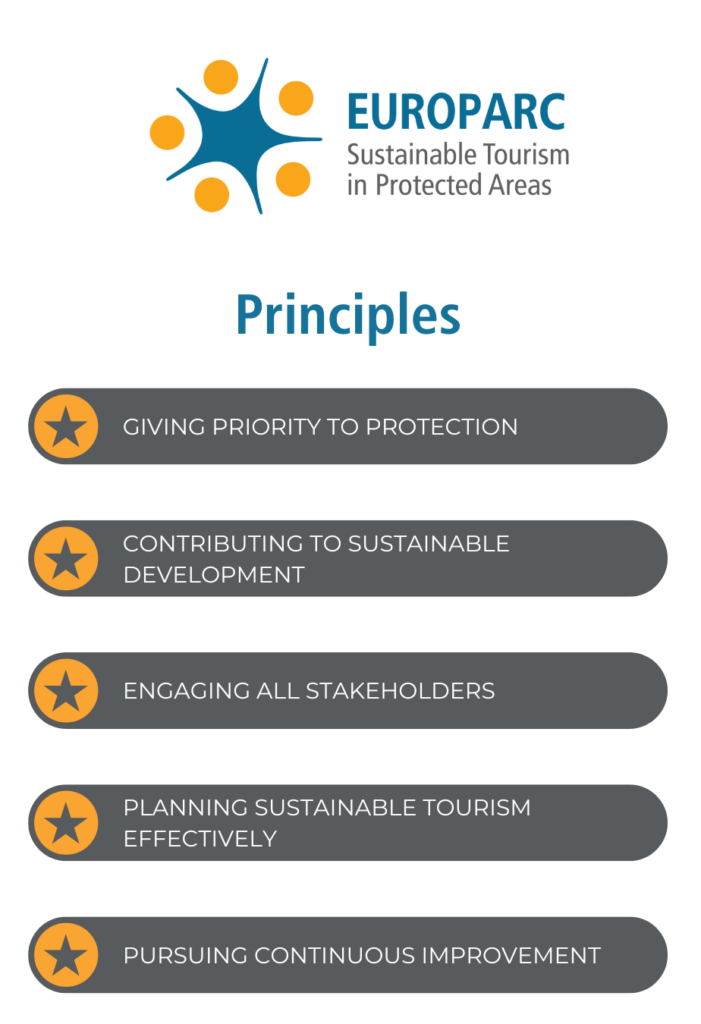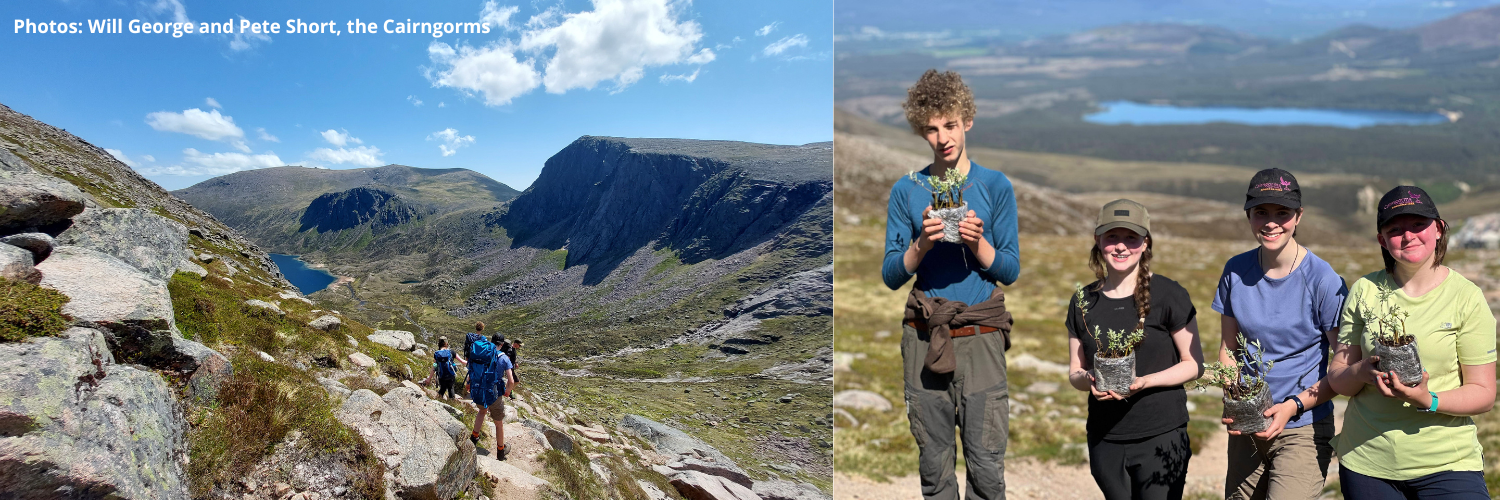Complementary EUROPARC Programmes: the European Charter for Sustainable Tourism and the Junior Rangers
Junior Rangers are the future park staff, business owners, tour guides and are important stakeholders in the European Charter for Sustainable Tourism.
Involving young people in the European Charter for Sustainable Tourism
by Rolands Auzins, ECST verifier
I care. I care about what is happening around now and in the future. I am interested. I am interested in how it works, why it happens and whether it can be different. I want to get involved. I want to be a part of the present and the future and be the one who can make things better. I’m a Junior Ranger.

Junior Rangers showcase their Protected Area at the International Junior Ranger Camp
Sustainable Destination principles govern how tourism is developed and managed in a Protected area. The European Charter for Sustainable Tourism in Protected Areas is a management tool, to ensure a viable and healthy future for people and for nature. Let’s pause here at “people” and focus on young people – the Junior Rangers. We for nature, nature for us. It is a mutual interaction between the two EUROPARC programs.
In charter parks, engagement with young people has largely been through the EUROPARC Junior Ranger programme. This programme has been operating effectively for many years and has proven itself to be a quality activity with a clear vision for the future.
Young people are an essential part of society in a Park involved in the ECST; they are stakeholders, and they will later take our place to continue what has been started. Years from now, a former Junior Ranger will come to the Park and say – hey, I’ve been here since I was a teenager, I know you and I know what you do. I want to be part of the team and maybe do even better.

A Junior Ranger introduces others to local Latvian specialities
Young people have a different point of view, they identify their own issues, which are not only worth it, but you definitely need to delve into them, because it is another perspective. Implementation of the ECST program is not possible without the involvement of young people. Junior Ranger activities are an excellent addition to the achievement of ECST’s goals, implementing various projects, activities, and engaging in the creation of a sustainable future. The young person is a Junior Ranger all the time, whether at school, at home, or in everyday life, and when working with ECST tasks, Park staff should remember that there is a young person nearby who is ready and willing to be involved.
How we (those currently in charge of parks and especially ECST Protected Areas) manage Parks now, what decisions we make, affects us now, but will affect young people even more later. Our decisions today mostly have long-term effects, which will be best appreciated by those who do not yet have direct decision-making rights. If a park has become a Sustainable Destination, it is a long-term decision that will ensure the sustainable development of this place in the long-term and will ensure that Junior Rangers will want to return here after studying at universities. Time passes quickly, young people grow up, and they have their own requirements for life, space and place (e.g. as expressed in the EUROPARC Youth Manifesto). With the European Charter for Sustainable Tourism, a solid foundation is laid for the future together with those who now proudly call themselves the Junior Rangers.
Junior Rangers contributing to the European Charter for Sustainable Tourism in the Cairngorms National Park
by Will George, Ranger at the Cairngorms National Park and Junior Ranger Mentor
 Whether repairing mountain paths, re-locating rare twin-flower or engaging with visitors about responsible access, the Cairngorms National Park Junior Rangers help to ensure a viable and healthy future for people and nature, and directly contributing to the Principles of the European Charter for Sustainable Development.
Whether repairing mountain paths, re-locating rare twin-flower or engaging with visitors about responsible access, the Cairngorms National Park Junior Rangers help to ensure a viable and healthy future for people and nature, and directly contributing to the Principles of the European Charter for Sustainable Development.
Earlier this year, four of them hiked up into the mountain plateau at the heart of the Cairngorms to deliver montane willow species to revitalise the remnant populations and increase the extremely rare montane scrub habitat. They were the youngest volunteers amongst a group organised by the Cairngorms Connect Partnership. So not only did they help to protect and improve the environment for the future, they also added passionate youth voices to a conversation involving a variety of stakeholders.
Katherine, aged 16, described what being part of the Willow Walk meant for her. “It makes us, as in the youth, feel like we’re doing something and we’re not just sitting round doing nothing. There is that sense of belonging. Being able to conserve and guarantee a future of this place for future generations makes me very happy. Doing small things to help, like bringing in the trees today, will help towards the bigger picture.”
Is your Protected Area a part of the European Charter for Sustainable Tourism?
Perhaps consider starting a Junior Ranger Programme to complement it.
Find out more on our website or send us an email!
